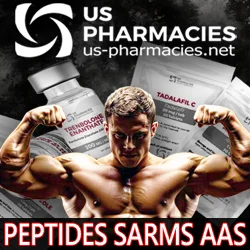Hey boys - here's a quickie. I am 32, sitting around 208, 6'2 1/2 and prob. 10%. I am a lifer, right now on a mild 500mg test, 400mg eq, 100mg of winny, hcg, and adex. Then I'm going to go back to HRT for a few weeks (12). Plan is to get back on stage after a 5 year layoff just to prove it to myself that I can.
So, I am in with a natural pro who knows jack about gear, but knows the fundamentals. he's got me on a good 2 on 1 off split, push, pull routine, all heacy 6-8 reps.
He has designed a diet for me, but i am a tad nervouse that it may be too much. i am a CPA so I sit all day and am currently doing no cardio 9alhough I train hard).....so, would you please look this over. I train late, so most of my meals are structured psot as it's fairly hard for me to eat during the day due to clients, office, etc. Plus, I'm 100x more hungry in the pm, so I like the set-up, just wondering if it's too much. Thoughts are great!
PROTEIN FAT CARBS CALS
9am
1/2 cup egg whites, 1 white 15 0 4 90
1 YOLK 7 6 0 85
1 CUP OATS 13 6 54 305
1 scoop BEVERLY 25 4 4 130 60
16 # 62 # 610
1pm
6OZ CHICKEN/OSTRICH/BEEF (POST COOK) 41 4 - 211
2 pcs EZEKIEL 4 4 30 200
VEGGIES 4 1 20 200
49 # 9 # 50 # 611
TRAIN FROM 5-630 (GYM IS 20 MINUTES AWAY THIS INCLUDES DRIVE TIME)SIP ON 3 SCOOPS EXTEND
700
2 SCOOP BEVELY INTL 40 7 8 240
4 RICE CAKES 2 4 48 240 42 # 11 # 56 # 480
8:00
6OZ CHICKEN/OSTRICH/BEEF (POST COOK) 41 4 - 211
7 OZ YAM (BEFORE COOKING) 3 0 55 235 1 TB PB 4 8 4 94 48 # 12 # 59 # 540
9:30-2 TBSP Peanut Butter 8 16 7 188
4 PCS EZEKIEL TOAST 12 6 60 400
20 # 22 # 67 # 588
11001 TUB DRY CURD COTTAGE CHEESE 40 - - 400
1 TB PB 4 8 4 94
44 # 8 # 4 # 494
BEDMIDDLE OF NIGHT
PROTEIN COOKIE
46 8 70 # 400 46 # 8 # 70 # 400
289 # 64 300 # 3,135
So, I am in with a natural pro who knows jack about gear, but knows the fundamentals. he's got me on a good 2 on 1 off split, push, pull routine, all heacy 6-8 reps.
He has designed a diet for me, but i am a tad nervouse that it may be too much. i am a CPA so I sit all day and am currently doing no cardio 9alhough I train hard).....so, would you please look this over. I train late, so most of my meals are structured psot as it's fairly hard for me to eat during the day due to clients, office, etc. Plus, I'm 100x more hungry in the pm, so I like the set-up, just wondering if it's too much. Thoughts are great!
PROTEIN FAT CARBS CALS
9am
1/2 cup egg whites, 1 white 15 0 4 90
1 YOLK 7 6 0 85
1 CUP OATS 13 6 54 305
1 scoop BEVERLY 25 4 4 130 60
16 # 62 # 610
1pm
6OZ CHICKEN/OSTRICH/BEEF (POST COOK) 41 4 - 211
2 pcs EZEKIEL 4 4 30 200
VEGGIES 4 1 20 200
49 # 9 # 50 # 611
TRAIN FROM 5-630 (GYM IS 20 MINUTES AWAY THIS INCLUDES DRIVE TIME)SIP ON 3 SCOOPS EXTEND
700
2 SCOOP BEVELY INTL 40 7 8 240
4 RICE CAKES 2 4 48 240 42 # 11 # 56 # 480
8:00
6OZ CHICKEN/OSTRICH/BEEF (POST COOK) 41 4 - 211
7 OZ YAM (BEFORE COOKING) 3 0 55 235 1 TB PB 4 8 4 94 48 # 12 # 59 # 540
9:30-2 TBSP Peanut Butter 8 16 7 188
4 PCS EZEKIEL TOAST 12 6 60 400
20 # 22 # 67 # 588
11001 TUB DRY CURD COTTAGE CHEESE 40 - - 400
1 TB PB 4 8 4 94
44 # 8 # 4 # 494
BEDMIDDLE OF NIGHT
PROTEIN COOKIE
46 8 70 # 400 46 # 8 # 70 # 400
289 # 64 300 # 3,135


 Please Scroll Down to See Forums Below
Please Scroll Down to See Forums Below 















